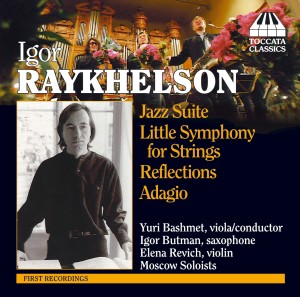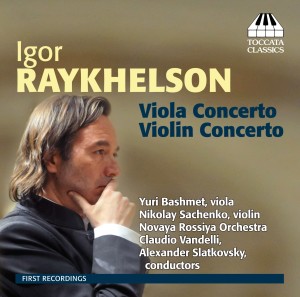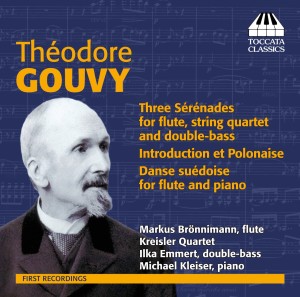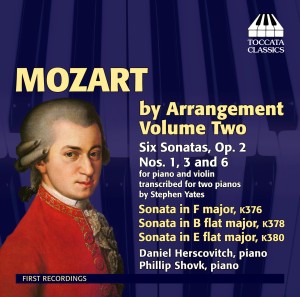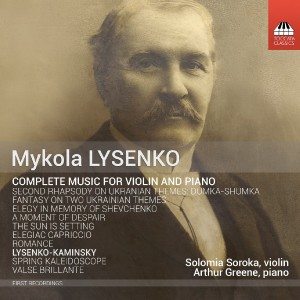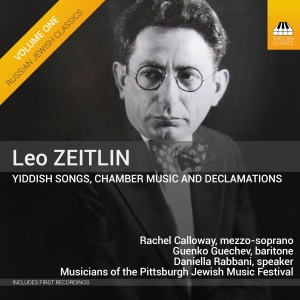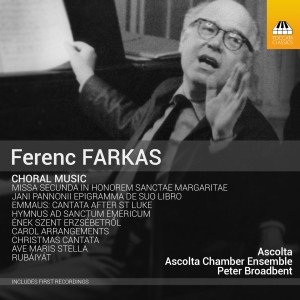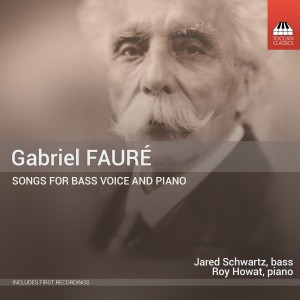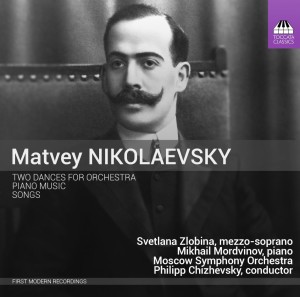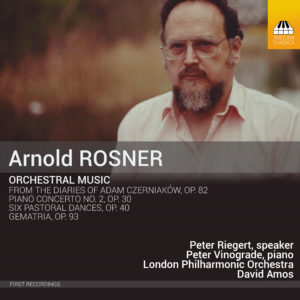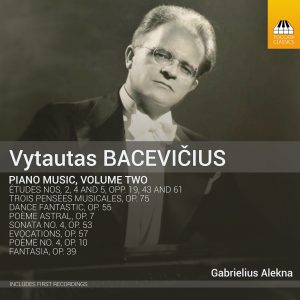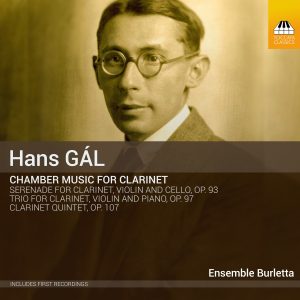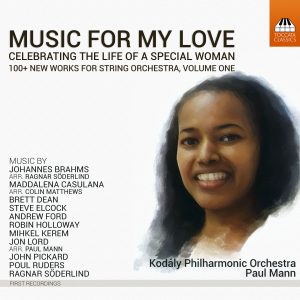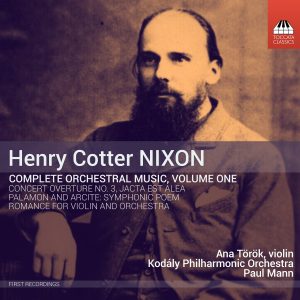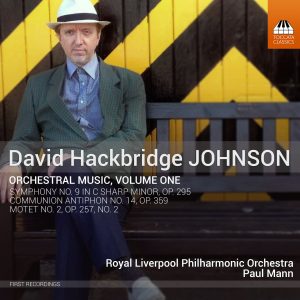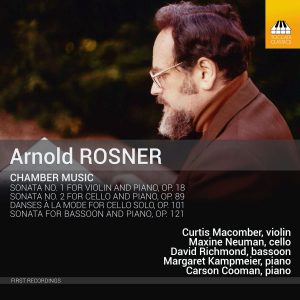Search Results for "C-ARSCC-2208 Latest Exam Question ✉ C-ARSCC-2208 Pass Guaranteed 🚴 New Guide C-ARSCC-2208 Files 🦞 Copy URL 「 www.pdfvce.com 」 open and search for ⮆ C-ARSCC-2208 ⮄ to download for free ☂Exam C-ARSCC-2208 Introduction" – Page 3
Showing results for arsi 4208 latest exam question £9 pass guaranteed £9 new guide files £9 copy url www croce com open search £9 £9 download free areas introduction croco chars 4208 arsi 4208 chars 4208 4208 4208
Igor Raykhelson: Jazz Suite and other works
In the words of his friend the violist and conductor Yuri Bashmet, the composer-pianist Igor Raykhelson – born in Leningrad in 1961 and now resident in New York – 'possesses a superb mastery of both classical and jazz idioms’. The highly individual fusion of styles that results, Bashmet continues, 'elevates his music over that of many other composers creating in the genre often referred to as “crossover”’. The Jazz Suite on this CD exhibits Raykhelson’s popular style at its most infectiously catchy; the other three works here – in the Russian tradition of writing for strings initiated by Tchaikovsky – present the more classical side of his muse.
Igor Raykhelson, piano
Yuri Bashmet, viola, conductor
Elena Revich, violin
Igor Butman, saxophone
Yuri Golubev, double-bass
Eduard Zizak, drums
Moscow-Soloists, ensemble
Igor Raykhelson: Viola Concerto; Violin Concerto
In the words of his friend the violist and conductor Yuri Bashmet, the composer-pianist Igor Raykhelson — born in Leningrad in 1961 and now resident in New York — 'possesses a superb mastery of both classical and jazz idioms'. The unashamed Romanticism of Raykhelson's Violin Concerto (2007) and its emphasis on melody place it downstream from Korngold, and though the Viola Concerto (2005) has its darker moments, its vigorous, jazz-tinged finale has the knock-about good humour of Rodion Shchedrin.
Yuri Bashmet, viola
Nikolay Sachenko, violin
Novaya Rossiya Orchestra, orchestra
Claudio Vandelli, conductor
Alexander Sladkovsky, conductor
Théodore Gouvy: Sérénades for Flute and Strings
The rediscovery of the three Sérénades for flute and strings by the Franco-German Romantic Théodore Gouvy (1819-98) — two of them commissioned by the Philharmonic Club of New York — brings a welcome expansion to the repertoire of nineteenth-century chamber music for flute. Gouvy's charming melodic language disguises the expert craftsmanship of a composer who, not belonging to any national school, has not had the attention his warm-hearted music deserves.
Markus Brönnimann, flute
Kreisler Quartet, string quartet
Ilka Emmert, double-bass
Michael Kleiser, piano
Mozart by Arrangement, Volume Two
The violinist and conductor Andrew Manze recently remarked that the six violin sonatas published as Mozart's Op. 2 in 1781 might also be effective as sonatas for piano duet. The Australian composer Stephen Yates has taken him up on the idea, adding six sparkling new two-piano sonatas to the single original one that Mozart himself produced.
Phillip Shovk, piano
Daniel Herscovitch, piano
Mykola Lysenko: Complete Music for Violin and Piano
Mykola Lysenko (1842-1912) is regarded as 'the father of Ukrainian classical music'. As did Bartók later in Hungary, he went out into the field, listened to what the people were singing and fashioned an individual musical language that brought together the styles of Chopin and Liszt and the essence of Ukrainian folksong. This CD presents his complete output of music for violin and piano, complemented by a new work for violin and piano commissioned to display the lyrical riches of Lysenko's songs.
Solomia Soroka, violin; Arthur Greene, piano;
Leo Zeitlin: Yiddish Songs, Chamber Music and Declamations
A member of the Society for Jewish Folk Music in St Petersburg, Leo Zeitlin (1884–1930) was known mainly for Eli Zion, a classic of Jewish art-music. Zeitlin died only seven years after emigrating to New York, still a young man, and his reputation languished until the recent discovery of a trunk full of scores brought his music back to light. This album attempts to remedy decades of neglect, especially for his charismatic Yiddish song-settings for voice, strings and piano. Zeitlin’s powerful declamations – Romantic piano music underscoring spoken Yiddish and Russian poetry – points to a genre that once was popular and is now forgotten.
Musicians of the Pittsburgh Jewish Music Festival: Rachel Calloway, mezzo soprano; Guenko Guechev, baritone and speaker; Daniella Rabbani, speaker; Elisabeth Pridonoff, piano; Luz Manriquez, piano; Dennis O’Boyle, violin; Laura Motchalov, violin; Marylene Gingras-Roy, viola; Isaias Zelkowicz, viola; Aron Zelkowicz, cello
Ferenc Farkas: Choral Music
Toccata Classics continues its exploration of the music of the Hungarian composer Ferenc Farkas (1905–2000) with this selection from his huge output of choral music, ranging in mood from the folklike simplicity of the Missa Secunda in honorem Sanctae Margaritae and his bright carol settings via the asperity of some late a cappella pieces to the fresh and buoyant Christmas Cantata. This recording is also the first by the new London-based chamber choir Ascolta.
Ascolta; Ascolta Chamber Ensemble; Peter Broadbent, conductor;
Gabriel Fauré: Songs for Bass Voice and Piano
This collection of Fauré’s mélodies – the first recording to be conceived for a bass voice – juxtaposes some of the composer’s best-loved songs with some of his lesser-known works. Going beyond the often arbitrary ordering of early editions, this programme draws out connections of poets and poetic themes, some of which restore the composer’s own original groupings. This is the first recording to be based on the new Peters Edition, which eliminates countless errors in older publications.
Jared Schwartz, bass; Roy Howat, piano;
Matvey Nikolaevsky: Songs and Dances
The Roaring Twenties roared in Russia as well as in Europe and America, to an extent generally unsuspected in the west. This CD reveals for the first time the light music of a minor master of the day, Matvey Nikolaevsky (1882–1942), whose songs and dances were hits in the early years of the Soviet Union. His style evolved effortlessly from the salon music of the late nineteenth century to the foxtrots, Charlestons and tangos popular during the relatively liberal New Economic Policy introduced by Lenin in 1921 and which Soviet audiences continued to enjoy after the NEP was abolished by Stalin in 1928.
Svetlana Zlobina, mezzo-soprano; Mikhail Mordinov, piano; Moscow Symphony Orchestra; Philipp Chizhevsky, conductor;
Arnold Rosner: Orchestral Music
The musical language of the New York-based Arnold Rosner (1945–2013) clothes the modal harmony and rhythm of pre-Baroque polyphony in rich Romantic colours, producing a style that is instantly recognisable and immediately appealing. The piano concerto which opens this album reveals that his personality was present from the start: although it was written before he had any formal training in composition, its confidence and individuality are striking. The other works here show the range of Rosner’s music, from his fondness for Elizabethan dance and his exploration of symphonic minimalism to an identification with his Jewish roots, in a harrowing setting for speaker and orchestra of extracts from the diary of the leader of the Warsaw Ghetto.
Peter Vinograde, piano
Peter Riegert, speaker
London Philharmonic Orchestra
David Amos, conductor
Vytautas Bacevičius: Piano Music, Volume Two
The Lithuanian pianist and composer Vytautas Bacevičius (1905–70) is one of the undiscovered pioneers of the twentieth century. This second volume of his piano music presents works written between 1927 and 1966 and shows the evolution of his musical language from the post-Skryabin style of the early works, via the influence of Debussy, Prokofiev and Stravinsky, to a highly individual modernism, akin to that of his fellow radicals Edgard Varèse and Stefan Wolpe – all three of them Europeans in exile in New York.
Gabrielius Alekna, piano
Hans Gál: Chamber Music for Clarinet
Like Brahms and Reger, Hans Gál (1890–1987) expressed some of his last musical thoughts in the form of a Clarinet Quintet, this one written when its composer was 87 years old. But the earlier works here – the Serenade written in Vienna between Gál’s expulsion from Nazi Germany and his flight after the Anschluss, and the Trio, composed in his new home of Edinburgh – reveal that its elegiac, autumnal lyricism was his natural mode of expression. In these three scores, indeed, he produced some of the loveliest music in the clarinet repertoire.
Ensemble Burletta
Shelley Levy, clarinet
Katalin Kertész, violin
Joanne Green, violin (Tracks 1 – 3)
Nichola Blakey, viola (Tracks 1 – 3)
Cressida Nash, cello (Tracks 1 – 3)
Pavel Timofeyevsky, piano (Tracks 4 – 6)
Music For My Love, Vol. One
CELEBRATING THE LIFE OF A SPECIAL WOMAN
100+ NEW WORKS FOR STRING ORCHESTRA, VOLUME ONE
When in late 2014 Yodit Tekle was diagnosed with stomach cancer, her partner, Martin Anderson, who runs Toccata Classics, asked a couple of composer friends to write some music to bring her comfort in her illness. As her life slipped away, he had the idea that she could be remembered in music and so he began to commission other pieces for string orchestra in her memory. To his surprise, almost everyone he asked generously accepted, and so the project snowballed: there are now over 100 composers who have written or agreed to write for it – an undertaking unique in the history of music. This first volume presents the first eleven pieces in an initiative which, in effect, transforms love into something you can hear.
Kodály Philharmonic Orchestra
Paul Mann, conductor
Henry Cotter Nixon: Complete Orchestral Music, Volume One
The English composer-conductor Henry Cotter Nixon (1842–1907) has entirely disappeared from music history. But this new series – presenting all his surviving orchestral music in its first-ever recordings – reveals Nixon to have been one of the most accomplished English composers of his generation, with a style that takes in elements of Mendelssohn, Schumann, Verdi and Brahms. Nixon labelled his five-movement Palamon and Arcite a symphonic poem (it is one of the first by a British composer), but it has much in common with the programmatic symphonies of contemporary composers such as Goldmark and Raff.
Ana Török, violin (Track 2)
Kodály Philharmonic Orchestra
Paul Mann
David Hackbridge Johnson: Orchestral Music, Volume One
The English composer David Hackbridge Johnson (b. 1963) has been, until now, one of the best-kept secrets in music, building up a huge catalogue of works completely unknown even within the classical world. Learning the orchestra from the inside, as a player, he has developed a confident and powerful language inherited in part from Brian, Copland, Janáček, Rubbra, Sibelius, Simpson, Tippett and other such masters, capable of bold strokes of colour and gripping dramatic gestures, often informed by a grim sense of humour, all given purpose by a masterly control of long-term symphonic tension.
“This is some of the most exciting new orchestral music that has ever come my way. David writes with complete mastery and meticulous craftsmanship, and above all packs an immense emotional punch.” —Paul Mann
Royal Liverpool Philharmonic Orchestra
Paul Mann, conductor
Arnold Rosner: Chamber Music
The musical language of the New York-based Arnold Rosner (1945–2013) clothes the modal harmony and rhythm of pre-Baroque polyphony in rich Romantic colours, producing a style that is instantly recognisable and immediately appealing. These four chamber works, all receiving their first recordings, embrace a wide range of emotions, from tragic nobility to buoyant good humour, with Rosner’s use of modality adding a hint of the Orient.
Curtis Macomber, violin Tracks 1–3
Maxine Neuman, cello Tracks 4–7, 11–13
David Richmond, bassoon Tracks 8–10
Margaret Kampmeier, piano Tracks 1-3
Carson Cooman, piano 8–10
Stay In the Know
JOIN THE TOCCATA NEWSLETTER
"*" indicates required fields
By visiting our site, you agree to our privacy policy regarding cookies, tracking statistics, etc.
